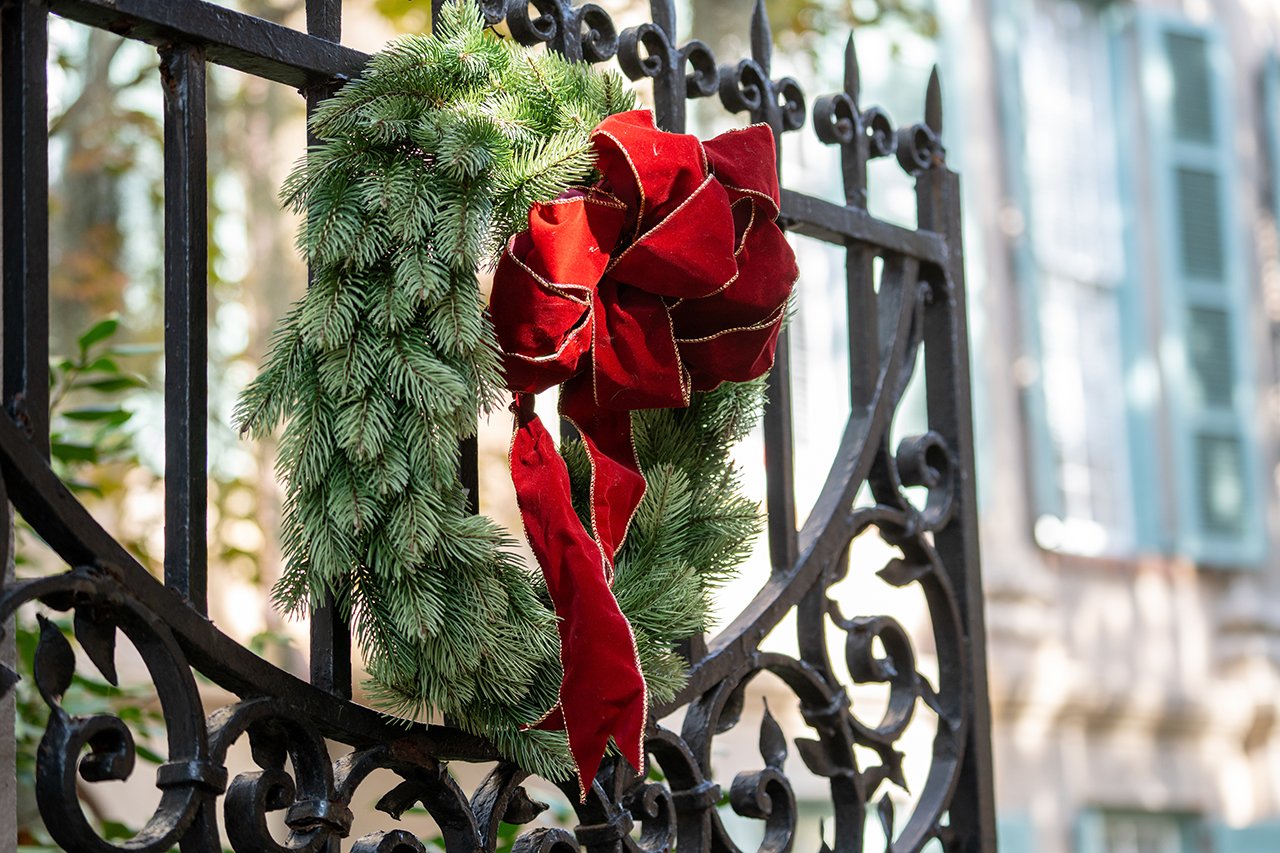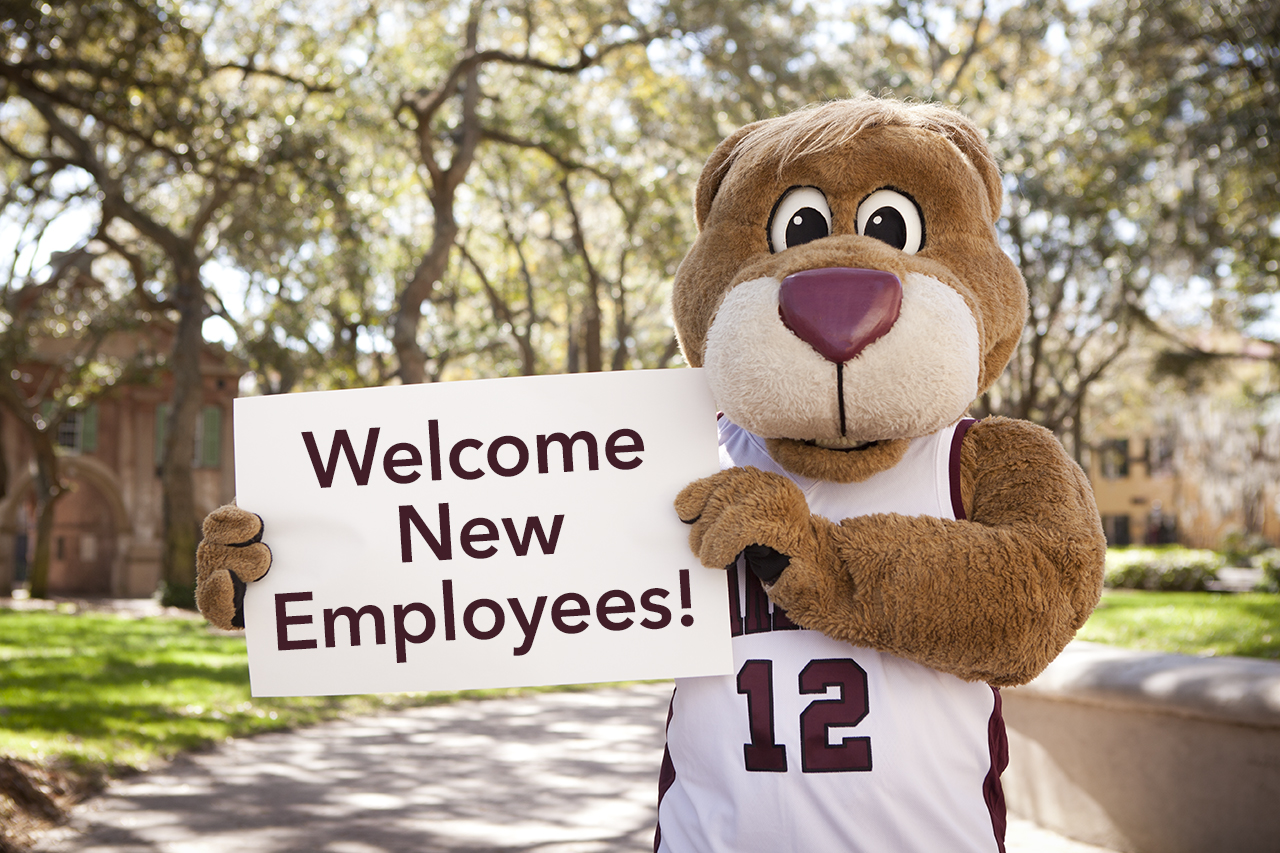Cougar Police Academy Takes Faculty, Staff 'Behind the Badge'
The inaugural Cougar Police Academy gave faculty and staff a better understanding of everything that the Department of Public Safety does to protect the campus community.
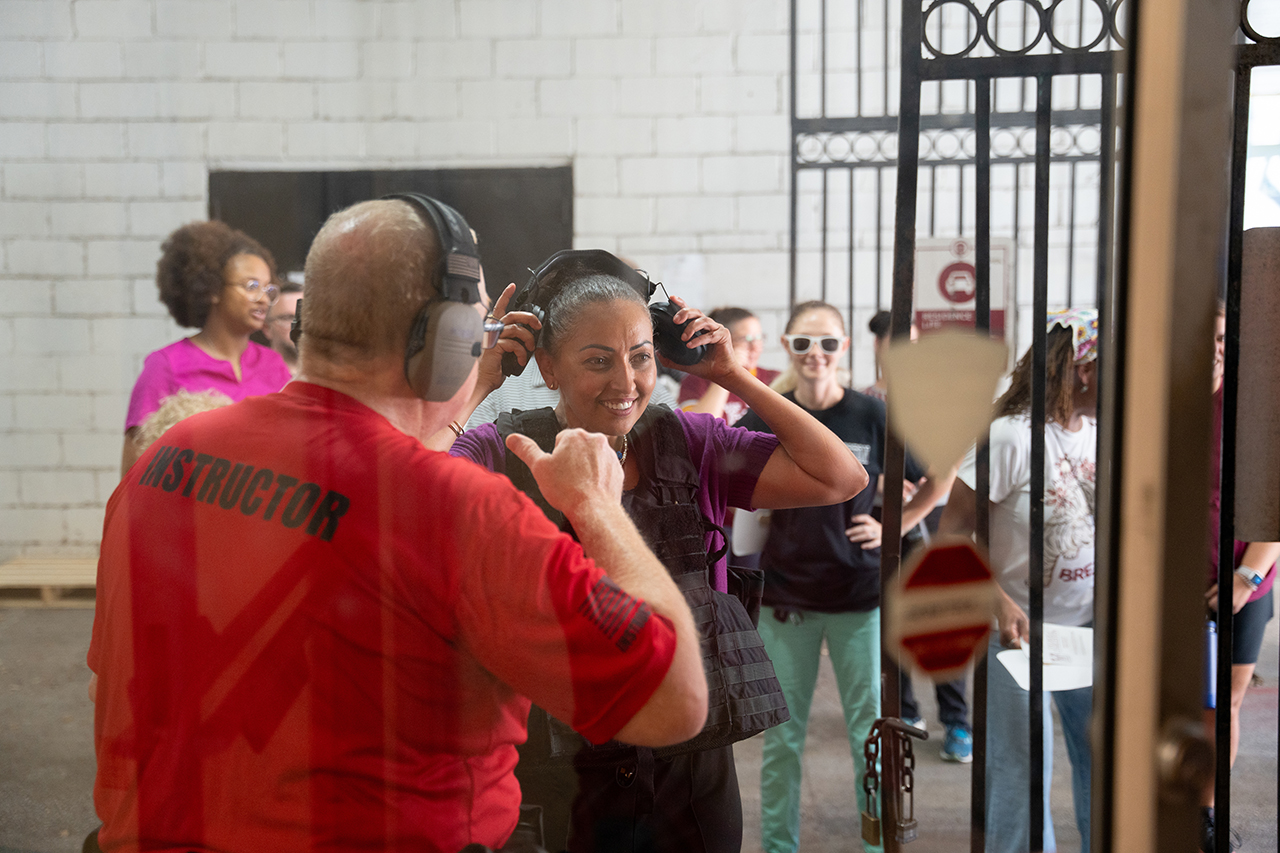
Above: Deputy Chief of Police Rusty Myers with Ghadir Abuein (Photo by Catie Cleveland)
“Go! Go! Go! Go!” Deputy Chief of Police Rusty Myers shouted, nudging Ghadir Abuein, an office manager in the Office of College Engagement, through the doors of College Lodge, where two Public Safety officers were searching, guns cocked, for the active shooter. “People are dying in there!”
No, Public Safety wasn’t passing the buck or throwing an innocent civilian into a dangerous situation. The officers were, in fact, providing some valuable insight into the work they face every single day – and having a lot of fun doing it.
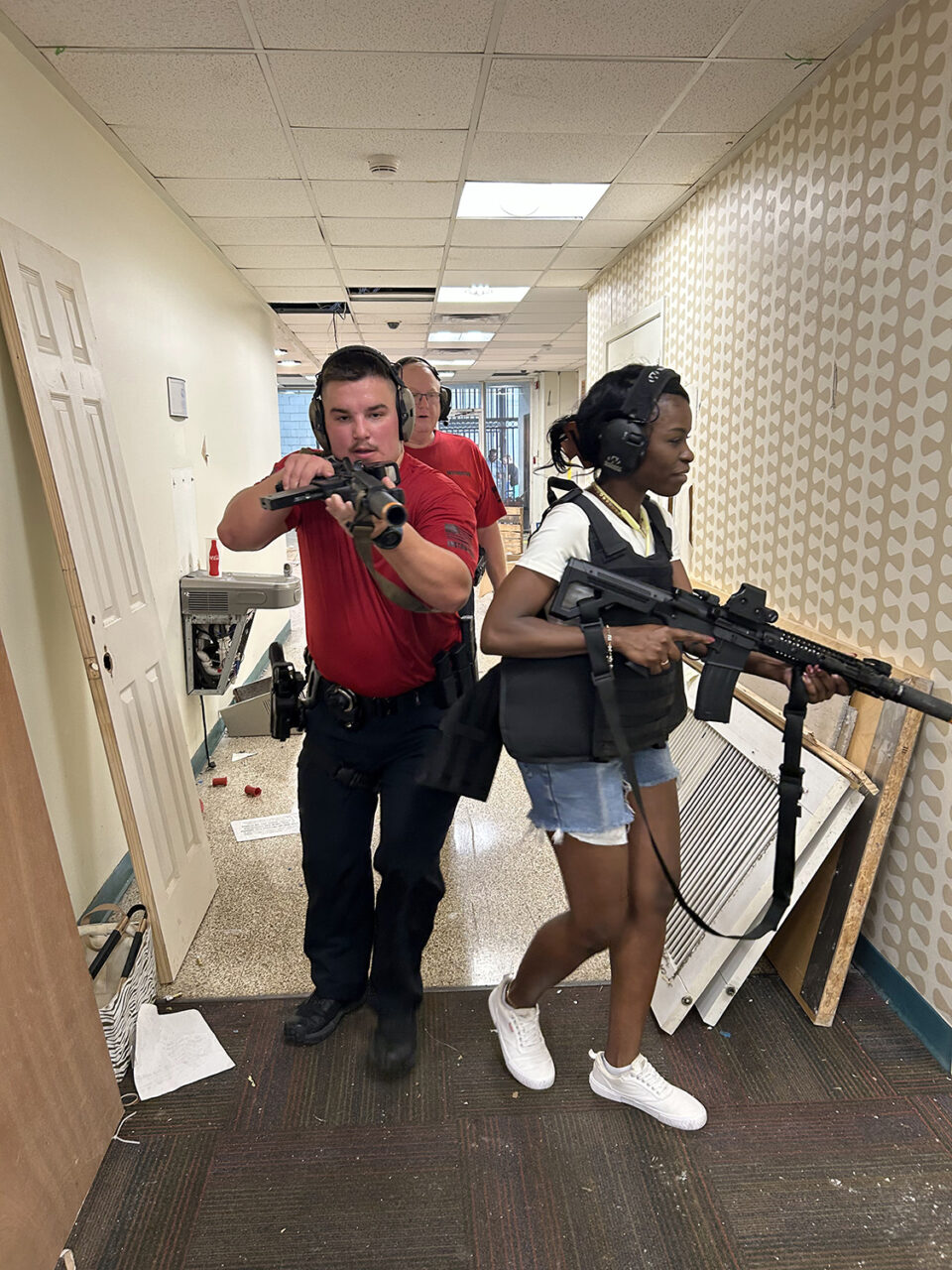
And so were the faculty and staff awaiting their turn to suit up and enter the abandoned dormitory – flash bangs in tow – in search of the “perpetrator” (aka Sgt. James Comfort).
It was the moment they’d all been waiting for: the fifth and final class in the College of Charleston’s inaugural Cougar Police Academy, when they got to really feel the weight of the vest, the rifles, the situation … the responsibility.
“It’s not as easy as people think it is, to run toward danger rather than away from it,” says Dave Aurich, who, as associate dean of students, works closely with the Department of Public Safety and has always held the officers in high esteem. “This gave me an entirely new level of respect and pride for DPS.”
The Cougar Police Academy was designed to give staff and faculty a “behind the badge” view of campus law enforcement operations and techniques so they better understand the systems in place to keep the College community safe.
“We wanted to provide an opportunity to meet us, see what we do and learn why we do things the way we do,” says Myers. “We wanted to create a bridge between us and the folks around campus. Hopefully it created some ambassadors who now understand us a little better.”
And that was exactly what William Ellis, a case manager in the Academic Success and Retention Office, hoped to get from the academy.
“I wanted to be a bridge and an advocate for Public Safety,” he says. “I’ve always been curious about what goes into keeping a campus like the College of Charleston running safely and smoothly. I see the officers daily, but I wanted to gain a deeper understanding of their work, their challenges and how they serve not just the College but the surrounding Charleston community.”
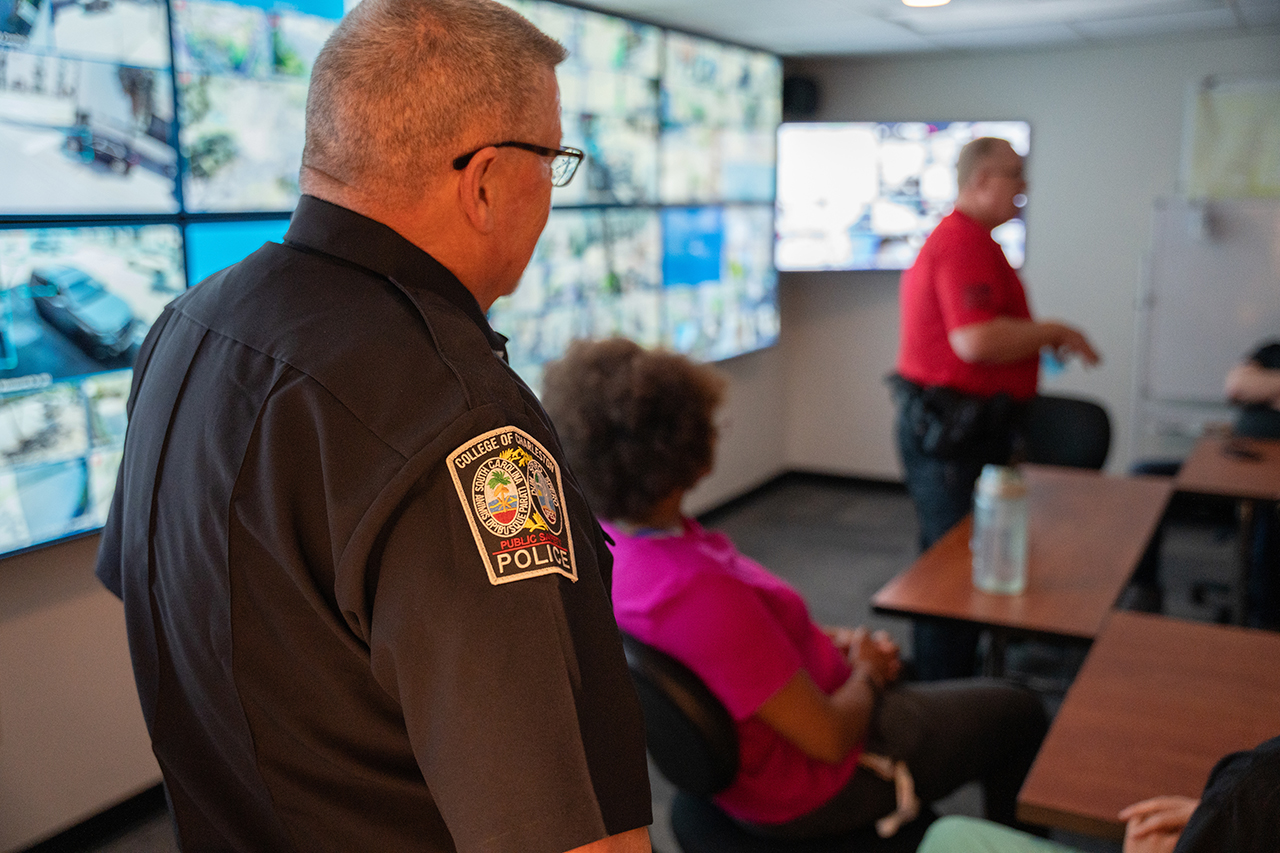
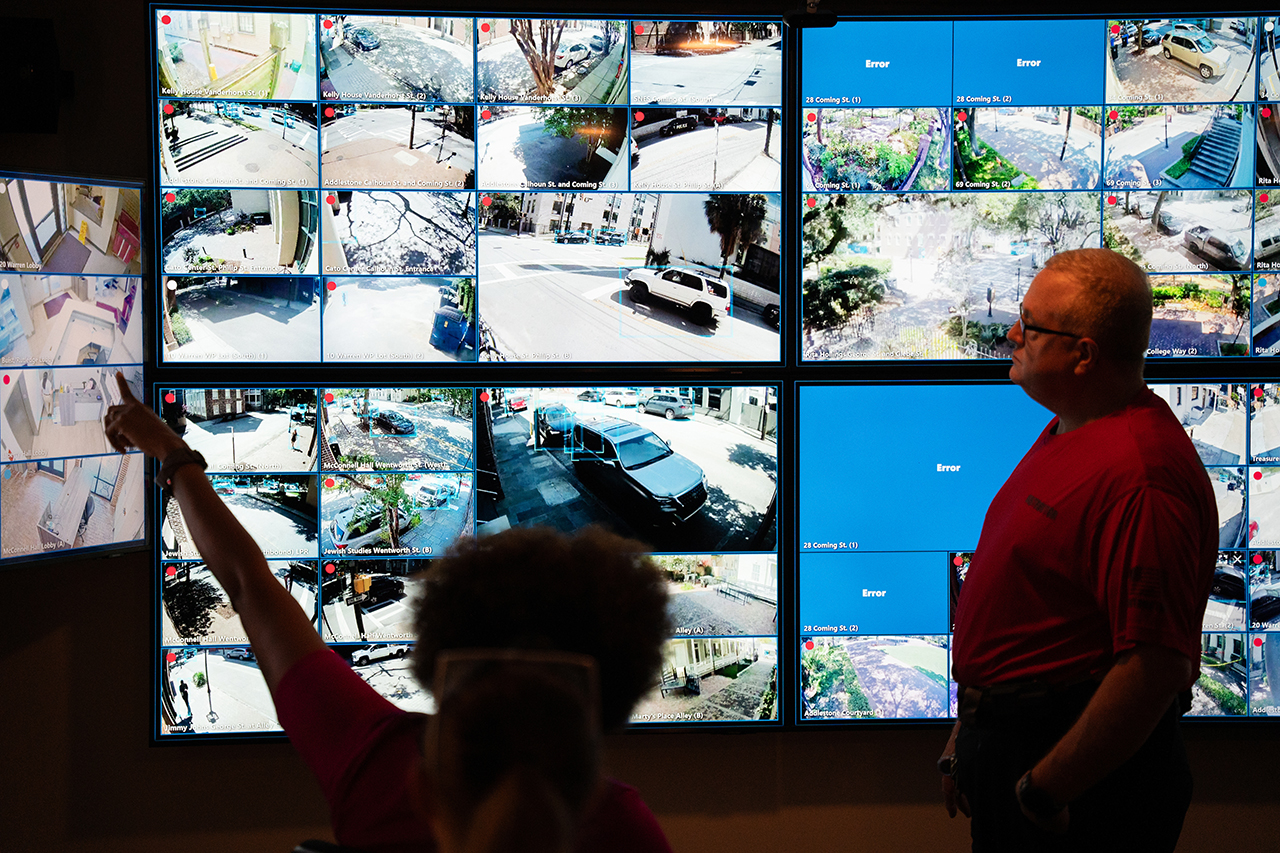
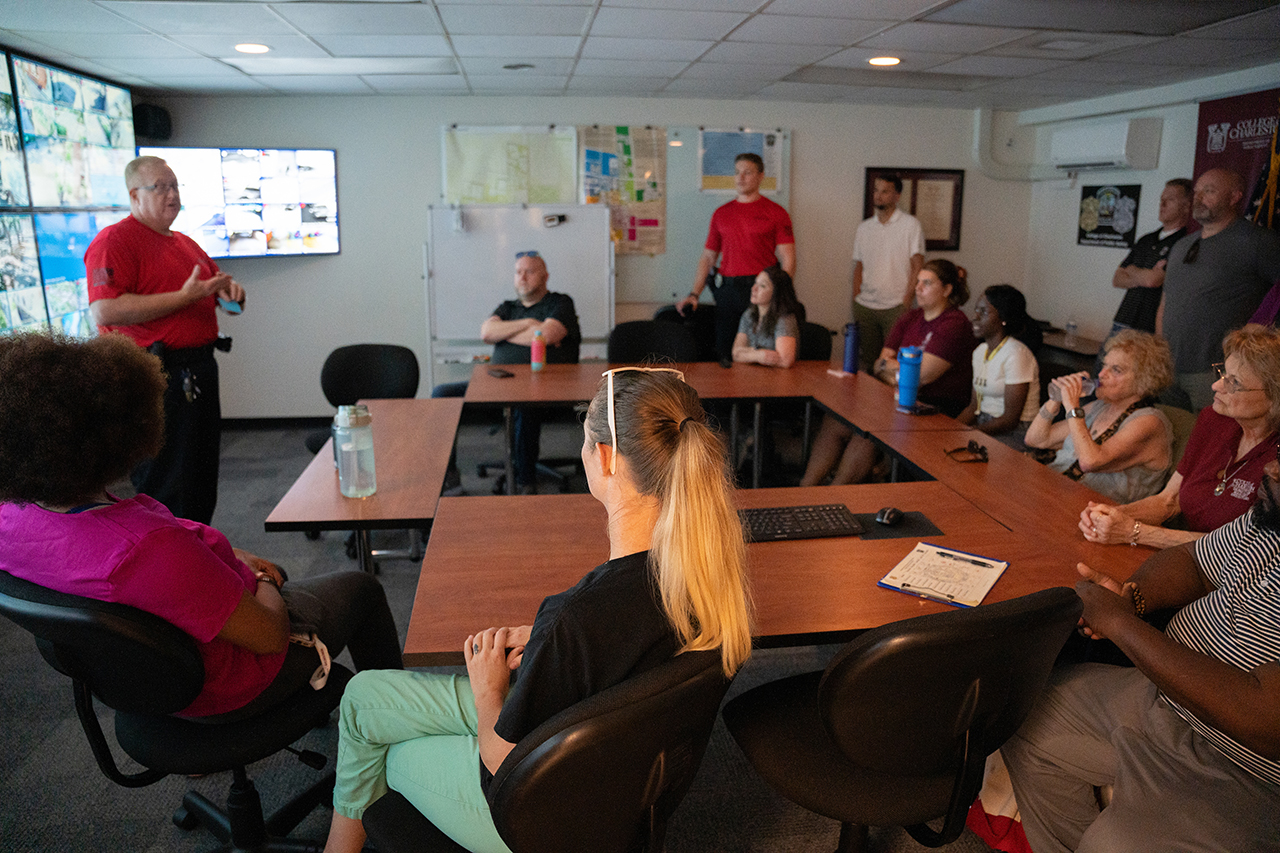
To gain that understanding, Ellis and the other participants spent two hours every Wednesday for five weeks learning about different aspects of police work: from patrol procedures to weapon demos to emergency communications to legal considerations to IT and drone operations.
Ellis was particularly impressed with “how the program combined classroom instruction with real hands-on training. That approach made all the difference. It helped me not only learn, but also feel what it’s like to be in their shoes,” he says.
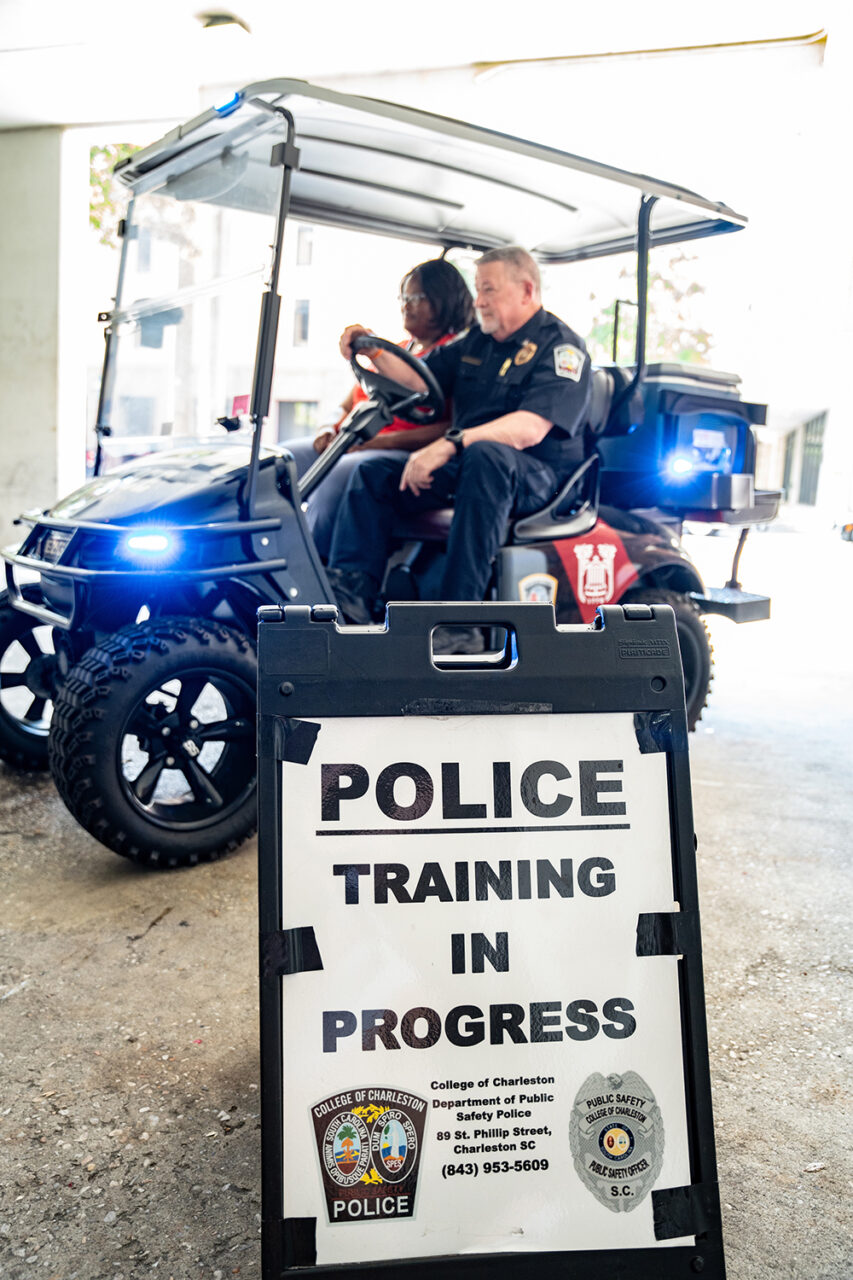
For an even better of the daily realities of policing on campus, Ellis took the chance to do a voluntary ride-along with an officer.
“It gave me a new perspective of the campus,” he says. “I was able to see areas I would have never explored on my own, and became more familiar with key buildings and spaces. It felt like discovering a new side of a place I thought I already knew.”
The academy also gave its participants the chance to get to know people from across campus a little bit better.
“My favorite part was meeting people from all over the College – some I have only known through email,” says Enid Idelsohn, administrative coordinator for the Yaschik/Arnold Jewish Studies Program. “Now there’s a face with their name.”
Getting to know the friendly faces of the DPS staff was also a benefit of the Cougar Police Academy.
“It’s not only informative, but also a great opportunity to build meaningful relationships with our officers,” says Clarissia Collins, an area residence hall director in the Department of Residence Life, adding that – despite their intimidating gear and uniforms – the officers are all very friendly and welcoming. “I was impressed by how personable and approachable they were, always willing to engage in meaningful conversation.”

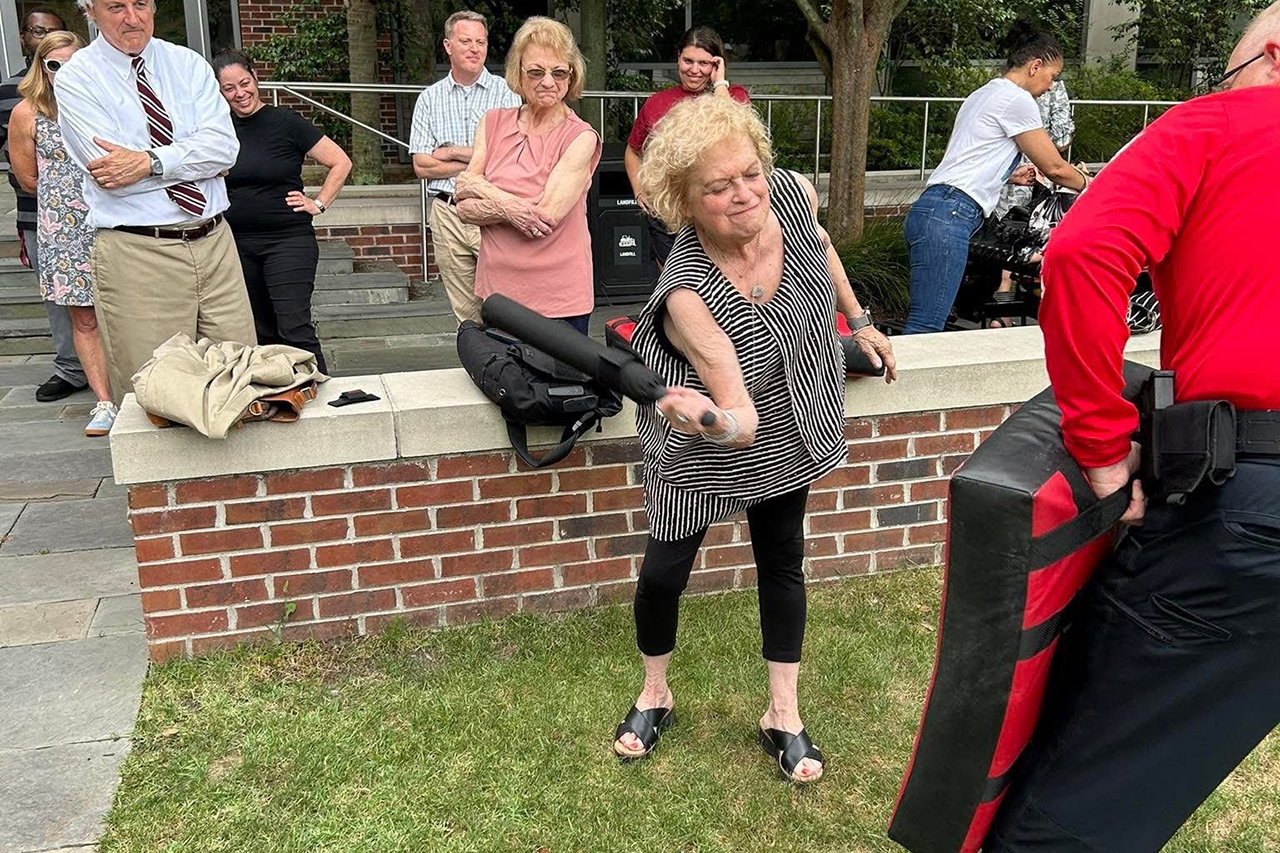

Ellis agrees: “The officers were kind, patient and truly passionate about sharing their work. They took pride in making sure we understood both the weight and the value of their role.”
The magnitude of the officers’ charge is not lost on Aurich.
“Knowing that there are men and women in DPS who are willing to put their life on the line for mine is something I will never take for granted. Our officers choose to do this, every day, to protect us. And to me, that is special,” he says. “We are in very good, capable and safe hands.”
And, the DPS believes, the better they know the people they serve and protect, the more capable and effective they can be.
“Campus safety is strengthened through relationships with students, faculty and staff. Creating relationships and building upon those relationships makes our campus a much safer place for everyone,” said Chief Chip Searson, associate vice president of public safety, addressing the crowd of 20-plus participants gathered in the School of Sciences and Mathematics Building’s Auerbach Auditorium on June 25 for the Cougar Police Academy graduation.
Each graduate was presented with a certificate for their participation, in addition to receiving a “Cougar PD Citizens Academy Graduate” tumbler.
But they weren’t the only ones who got something from the experience.
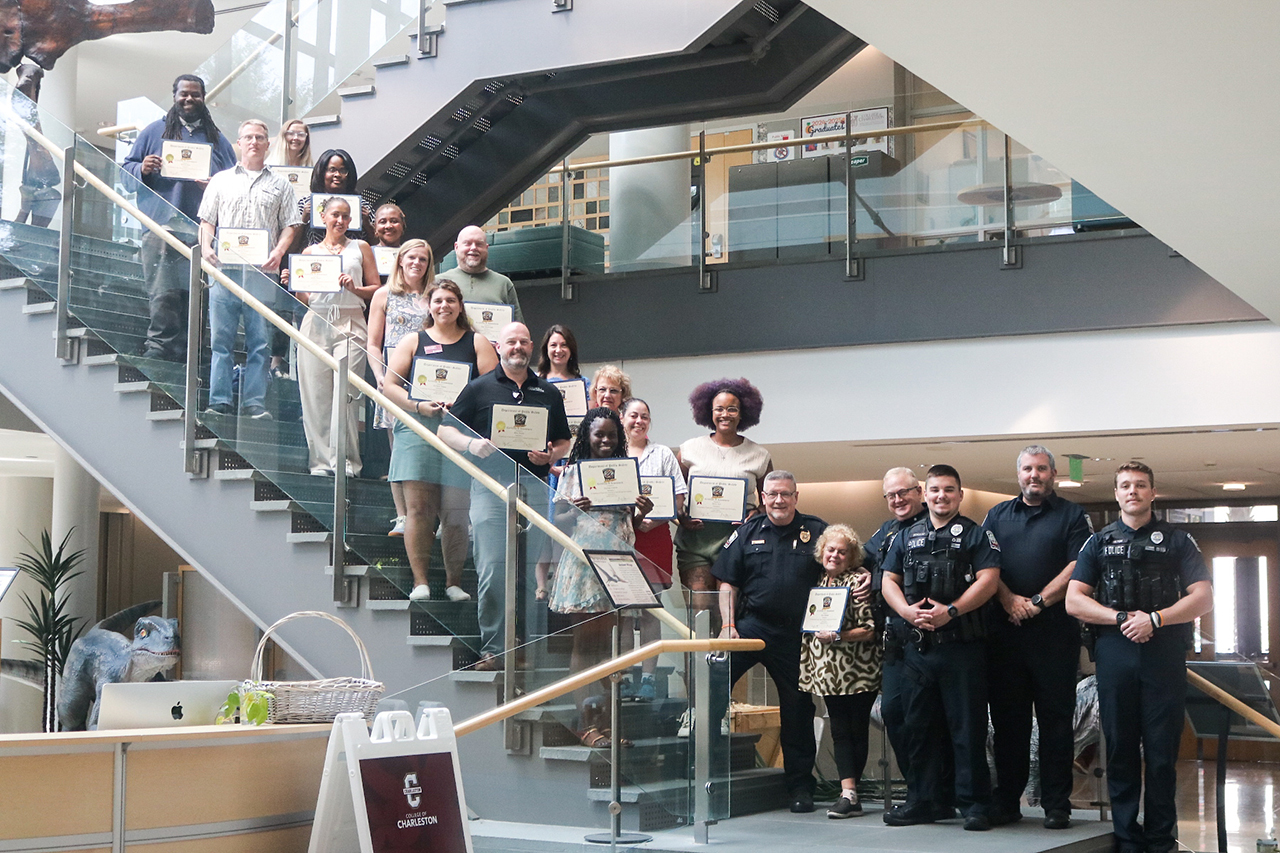
“Our team gained a lot from this experience. We learned from you,” Searson told them. “It was a great to share this time with you. I didn’t want it to end – it was really special for us to share these sessions with each of you.”
“It was a lot more fun than I expected,” Myers agrees, noting that he appreciates how engaged and inquisitive the academy’s first cohort was. “I am looking forward to the next one.”

It’s TBD when, exactly, the DPS will offer the next Cougar Police Academy, but Ellis encourages all faculty and staff to take advantage of the opportunity when they do.
“Sign up. Go in ready to learn, explore and connect. Take it all in, every single moment,” he says. “This program gives you more than just information. It gives you perspective and purpose.
“The Cougar Police Academy isn’t just about training for the job: It’s training for life,” Ellis adds. “This is the kind of learning that stays with you no matter where you go.”
And, now with these new ambassadors on campus, the DPS hopes the Cougar Police Academy’s impact will go a long, long way.

